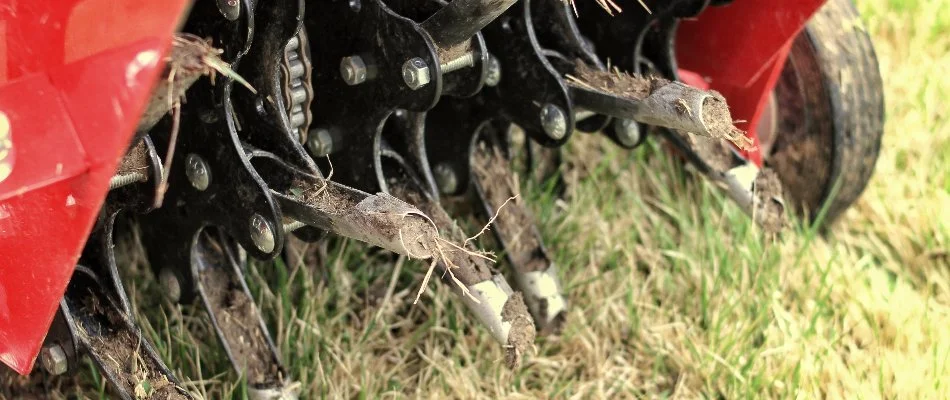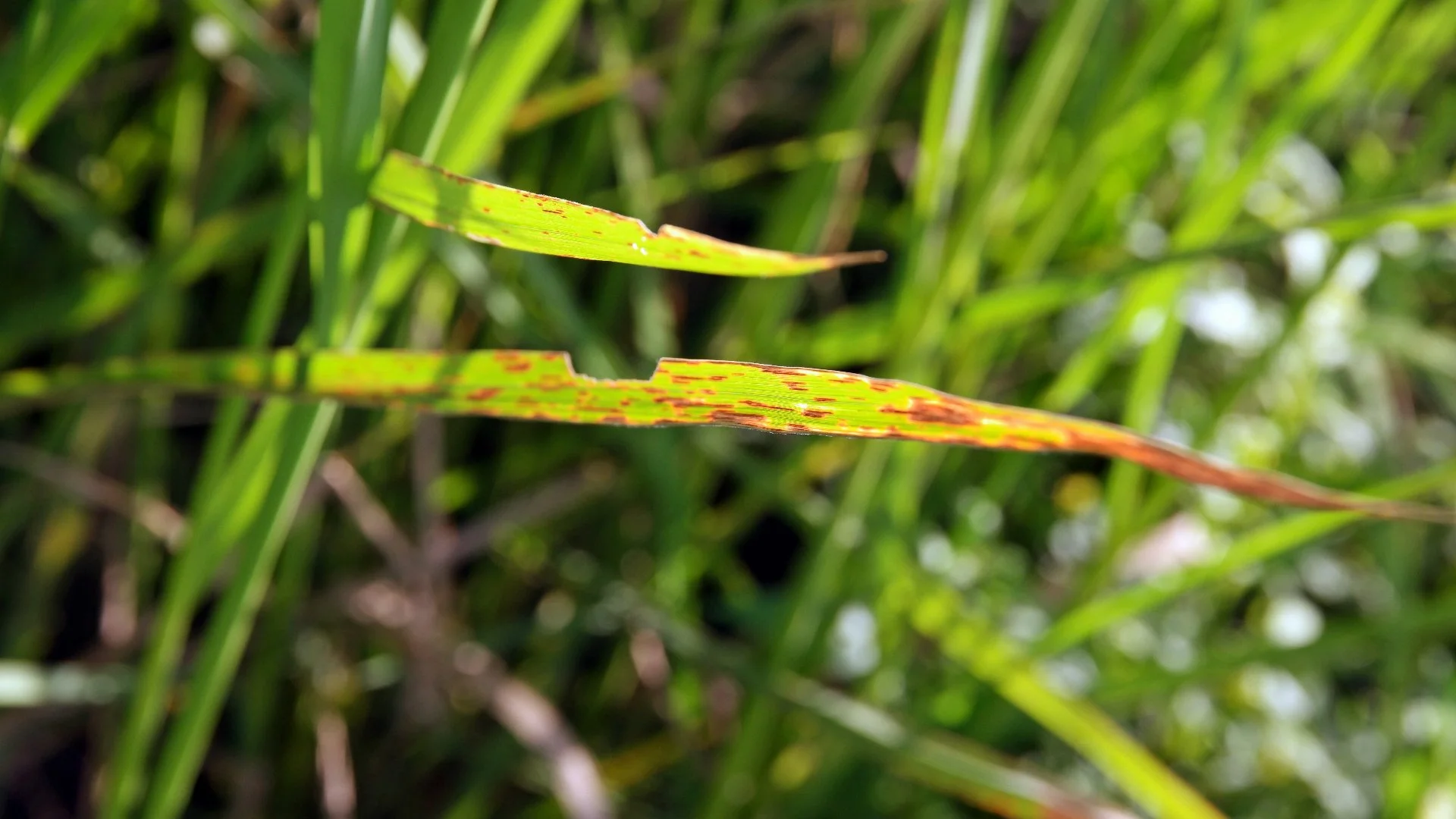Everyone's dream lawn is lush, healthy, and green, so it's frustrating when you notice that the grass blades have brown spots. Unfortunately, this is a tell-tale sign of leaf spot. Leaf spot is a common lawn disease in South Dakota, becoming most active during warmer, humid weather and causing small brown spots on the grass blades, with damage worsening as it progresses. If you suspect your lawn has become infected with this fungal disease, you should contact professionals immediately so they can diagnose and treat it. Practicing routine lawn care, such as fertilization, aeration, and overseeding, will help your turf recover from any leaf spot-related damages, plus prevent it from infecting in the future.
What is leaf spot, and what damage can this lawn disease cause?
Leaf spot is a lawn disease that becomes most active when the weather is warm and humid. When left to its own devices, this fungal infection can severely damage your turf, with initial symptoms being small brown spots on the grass blades. These spots can grow larger, eventually causing dieback. As leaf spot continues to spread, it can result in the melting out of the roots, meaning they start to rot, which leads to patches of dead grass across your lawn.
What should you do if you suspect leaf spot has infected your lawn?
If you suspect leaf spot has infected your lawn, the last thing you want is for the damage to worsen, so it's crucial to contact professionals immediately. When you do, they'll inspect your grass and determine whether this disease is what's harming it. Then, they'll administer curative treatments to eliminate it so it doesn't continue to cause problems.
Practicing Routine Lawn Care Will Help Your Grass Recover & Prevent Future Leaf Spot Infections

A necessary step you'll want to take after leaf spot is stopped is to practice routine lawn care. Not only will doing this help your grass recover from any damage it sustained, but it'll also prevent it from infecting in the future. Here are three services you'll want to include in your lawn care regimen:
- Fertilization: Fertilizing your lawn will provide the nutrients it needs to regain its strength and color after a leaf spot infection. Routinely nourishing it will also encourage root development and increase its resistance to stressors so it has an easier time naturally fighting them off.
- Aeration: Aeration will loosen compacted soil and create passageways for nutrients, sunlight, water, and oxygen to reach the roots of your grass. This process is highly beneficial because your lawn can recover quicker from any damage with improved access to vital resources, and routinely doing it will ensure it continues to thrive year after year.
- Overseeding: Overseeding involves spreading seeds across your turf to fill patchy areas resulting from leaf spot with new, healthy grass growth. Not only will increasing its density boost its curb appeal, but it'll also strengthen its defenses against diseases in the future.
Leaf spot remains in the thatch layer of your lawn when it doesn't have ideal conditions to develop, which aeration will break up, reducing its chances of establishing.
Call Us to Sign Up for Our Lawn Disease Control Service Today
If you think leaf spot has infected your lawn, don't worry - our experts at Sharp Lawn Care are here to help! We offer a lawn disease control service, where we'll visit your property to determine whether this disease is the culprit. Then, we'll apply our highly effective curative treatments to stop the spread and help get your lawn on the road to recovery. We also offer lawn care services like fertilization, aeration, and overseeding to prevent leaf spot and other fungal diseases from causing problems in the future.
Our lawn disease control service is available to residential and commercial properties and HOAs in Sioux Falls, Tea, Harrisburg, SD, and other nearby areas. We also serve those in Sioux City, IA. If you're in the Sioux Falls, SD area, call us at (605) 251-6880 to sign up today! If you're in Sioux City, IA, you can reach us at (712) 253-8024 to get started.




Comments (0)
Thanks for your comment!
Thanks for your feedback! Your comments have been successfully submitted! Please note, all comments require admin approval prior to display.
Error submitting comment!
There is a problem with your comment, please see below and try again.